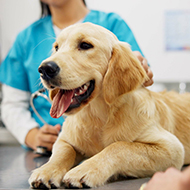British gulls transport plastic waste to Spanish lake
“Gulls are highly mobile and act as highly efficient biovectors” – Chris Thaxter.
British gulls wintering in Spain are transporting significant amounts of plastic waste and depositing it in a vital wetland habitat, a study has found.
The birds are ingesting the plastic alongside other waste products as they forage on British landfill sites. After they travel to Spain, it is then being regurgitated in pellets as they gather in wetlands to roost.
Researchers from the Doñana Biological Station, working in collaboration with the British Trust for Ornithology (BTO), sampled pellets and faeces from lesser black-backed gulls in the Fuente de Piedra lake nature reserve in Malaga.
They found that 86 per cent of pellets contained plastics, and 94 per cent contained other litter such as glass and textiles. Polyethylene was the most common plastic found. Faeces contributed just one per cent of the plastic mass deposited.
Using GPS data which tracked gulls from UK breeding sites alongside census data, the researchers estimated that an average of 400kg of plastic was deposited in the lake by gulls each year.
The Fuente de Piedra lagoon is an important habitat for wildlife and home to the largest colony of greater flamingos in the Iberian Peninsula.
Chris Thaxter, senior research ecologist with the BTO, said: “This study suggests that the translocation of harmful plastics could be more widespread and problematic than we’d assumed.
“Gulls are highly mobile and act as highly efficient biovectors, transporting these pollutants considerable distances, posing yet more threats to important wetland habitats across the globe.”
The study has been published in the journal Science Direct.
Image © Shutterstock



 The CMA has invited comments on a draft survey invitation letter, as it continues its investigation into consumer experience.
The CMA has invited comments on a draft survey invitation letter, as it continues its investigation into consumer experience.